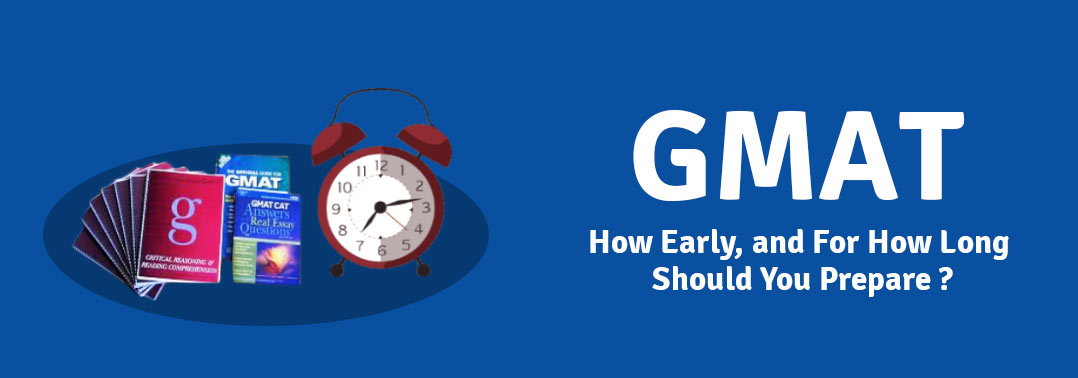If you are planning—or have already decided—to take GMAT, your journey can be broadly divided into the following three stages:
Aspirant: The span of time when you are gathering information about your target B-schools, and training/preparing for GMAT.
Applicant: You have cleared GMAT with a satisfactory score; so, you are sending applications to different B-schools, and preparing the essays, profile, etc.
Candidate: You have been selected by one or more B-schools; and now, you are at the final decision-making stage, while processing the necessary documents for admissions/departure.
While discussing about preparing for GMAT, we will be primarily covering the stage of an ‘aspirant’; and eventually, how it will lead you to become a successful ‘applicant’ and ‘candidate’.
But before that, let’s take a brief overview of few time-based features of the exam.
First, you can sit for GMAT five times within a rolling 12-month period (i.e., within 365 days from your first attempt) with a gap of 16 days between successive attempts. You can make eight such attempts in total in your lifetime.
Second, your GMAT scores are valid for the next five years from the time of your attempt; and are available for reporting up to 10 years, after which they are no longer made available.
Third, except for the lower-age limit (at least 18 years), GMAT has no age bar for aspirants to appear for the test.
So, GMAT takers get enough flexibility to plan and decide on their attempts, and waive the pressure and anxiety of missing out if the score from the first attempt is not satisfactory. However, there is a pitfall. Often, this lack of strict schedules tends to bring in a sense of carelessness. You need to keep in mind that, although you do not have any time restriction on when to attempt GMAT, universities and B-schools (both in India and abroad) adhere to a strict timeline for admissions and new sessions.
Thus, it is crucial that you plan your exam schedule in tandem with the admission deadlines of the B-schools of your choice.
Now, taking into account that you are willing to take the GMAT and apply right away, we will address the question of ‘How early, and for how long, one should prepare for GMAT?’
It is understood that the preparation time for GMAT varies from one individual to another, based on his/her capacity to grasp new concepts, the level of confidence, circumstances (whether they are a student or a working professional), etc.
Once you have registered for the GMAT, take a diagnostic test to assess and understand your present position and level of preparedness.
The test results will give you a fair idea about your areas of strength & weakness, time allocation for each section, overall speed to finish answering the paper, etc.
Generally speaking, you should start preparing 3–6 months ahead of your GMAT schedule, with an average study plan of 10 hours/week. But avoid cramming over the weekends, or weeks before the exam. Similarly, if you start your preparations too early, the schedule can become tedious and monotonous.
So, what is an organized and target-based preparation plan that will yield best results, while leaving some room for corrective actions?
Let us take a calendar-based example to understand how you can create a timetable for preparation. Usually, B-schools abroad conduct couple of rounds of admissions. The deadlines of application for most of these schools are:
Round 1: First week of October
Round 2: First week of January
Suppose, you are planning to get admission in a B-school in 2020; and you are targeting the Round 1 period to send your applications. Now, let us work backwards to understand the time allocation and calculations for your GMAT attempt.
To prepare the applications and write the essays, including the multiple rounds of iterations, one usually requires three months after completing GMAT. So, if your application deadline is October 2019, you should take the GMAT by end of June, 2019.
And when we say ‘take the GMAT by end of June’, it need not necessarily be your first and final attempt. In fact, worldwide, GMAT is attempted more than a quarter of a million times each year, and approximately a fifth of them are repeat candidates. So, it is commonplace for aspirants to retake the GMAT to improve their scores. Thus, you should have at least 16–30 days in hand to make a repeat attempt.
Which means, ideally, your first GMAT attempt should be around April–May, 2019.
Now, going by the recommendation that you should start studying around 3–6 months prior to your first GMAT attempt, November–December, 2019 is the time to begin your preparations.
Having said that, if you wish to study in one of the top B-schools, you should be buckled up already! Career Launcher offers online practice questions and test-taking tips to help you reach the 700+ score milestone. So, register, learn about the sections and question types in detail, calculate your timing and pacing, and begin work on your areas of weaknesses.
Remember, with proper planning and preparation, you will smoothly make that transition from an aspiration to a candidate.
Best of luck!
Shoma Banerjee
Guest Author





















































